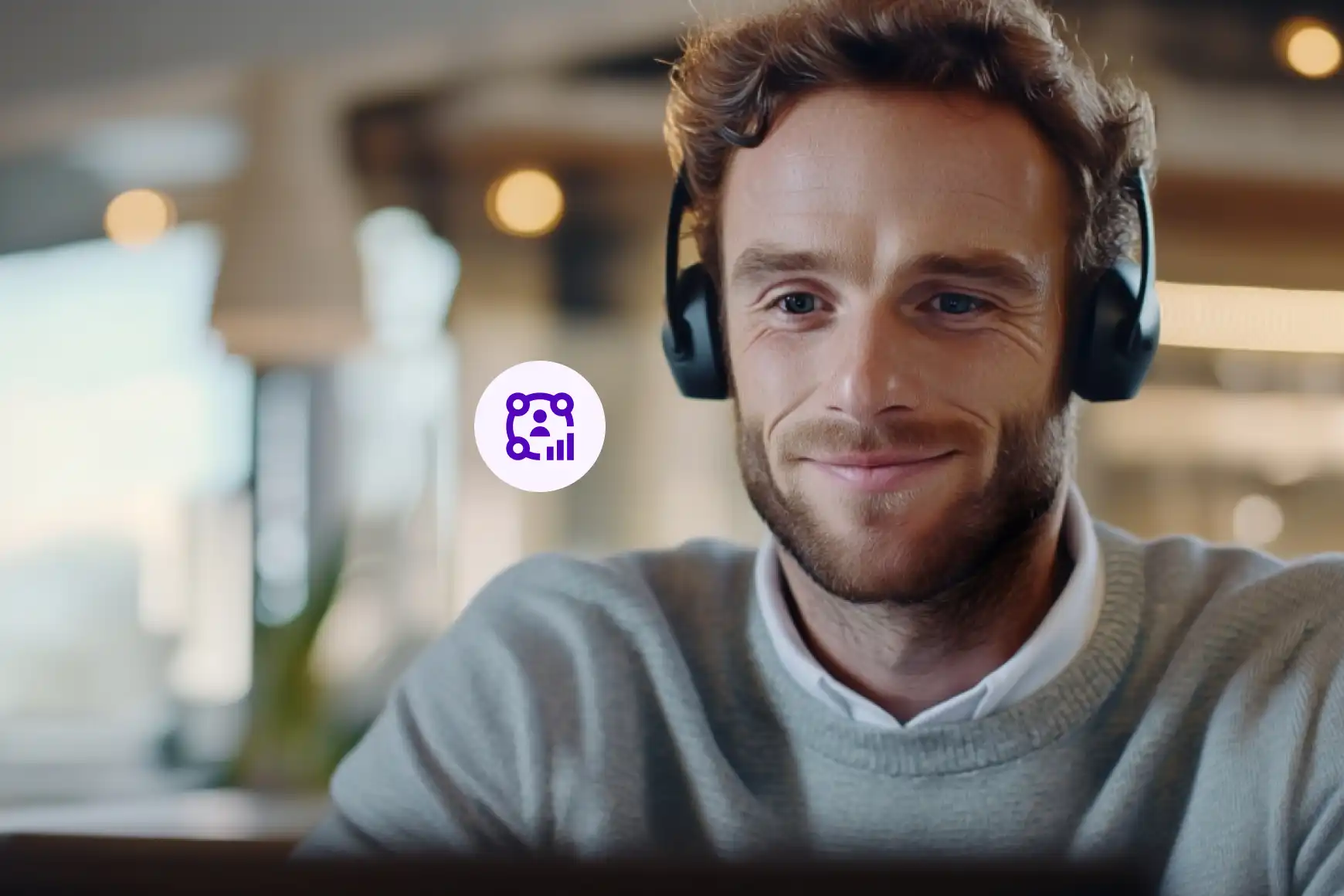Essential customer service statistics and trends for 2023

By Antonio Gonzalez
0 min read

For the past two years, customer service has changed drastically.
We got used to doing everything online, from doctor appointments to work meetings and shopping. We’ve changed habits, use an ever growing number of channels to interact with businesses, and expect to be recognized as individuals every time. Great customer experience matters more than ever for loyalty, but it looks like it continues to evolve. The customer experience statistics we’re sharing below are a great insight into how expectations and behavior are changing to help make informed decisions about your customer service strategy.
Talkdesk Research™ provides high-quality research and analysis that equips contact center and CX leaders with the actionable insights they need to make the right decisions from strategy through execution. Our unbiased, rigorous research provides insights into customer service trends to support your customer service project goals and build your business case for new capability investments.
We’ve compiled the following key customer service statistics and quotes from our research:
Quick and easy resolution drives loyalty today, but consumers are coming to expect meaningful engagement.
- 67% of CX professionals say that their contact center is transforming–or has already been transformed–into a profit center.
- 91% of CX professionals say that their contact center is a major driver of customer loyalty.
- The ability to resolve any problem on first contact is the #1 driver of customer loyalty, an agent going above and beyond is the #2 driver.
- 49% of consumers report that they stopped working with a company in the past year because of an instance of poor customer service.
- The top factor that undermines customer loyalty is having to repeatedly contact a company.
- 46% of Gen Z consumers stopped buying from a company due to its stance on social issues in the past year, compared to 35% of Gen X and 22% of Boomers.
- 40% of Gen Z consumers stopped buying from a company in the past year due to its stance on sustainability, compared to 31% of Gen X and 17% of Boomers.
“Gen Z is a little less forgiving of mistakes. There are higher expectations in terms of response time. They are also comfortable publicly discussing their displeasure, while other customers would rather it be addressed privately.”
Director of customer experience – Major global entertainment ticketing platform
“[Gen Z] customers’ expectations are high, and the amount that they are asking about the product and the amount of knowledge that agents need to have to serve these brands is a lot.”
CEO – North American CX consultancy
“In general, Gen Z and millennials are going to be a lot more likely to accept self-service options than the older generations.”
Senior director of call center technology – Major American broadcasting company
Companies are striving toward more advanced AI in customer service.
- 85% of CX professionals believe it is important to leverage AI now, and 89% believe it will be important to do so in two years.
- The top perceived risk of not using AI is lowered customer satisfaction, followed by loss of productivity.
- The share of CX professionals who consider their organization’s “advanced” in their application of AI decreased from 41% to 35% from 2021 to 2022.
- The top three barriers companies face in implementing AI are security and IT risks, misalignment and resistance among leaders to forming a vision around AI, and gaps in the talent needed to build, use and maintain AI.
- 50% of CX professionals agree that their organization is limited to less effective native AI solutions in their current contact center architecture.
“You need to have all of the right components within your company; you need rudimentary stuff that will work for everybody. It’s a very simple process to actually make your company much more efficient and utilize the capabilities of AI and machine learning. But it has to be an organizational thing. It can’t just be a department thing.”
VP global support – Technology company
Organizations will continue to explore capabilities to enable and engage their customer service workforce.
- 90% of CX professionals report that contact center agent engagement is a major driver of customer loyalty for their organization.
- 54% of CX professionals expect average levels of agent attrition through 2024 to be 20% or more.
- 90% of CX professionals report that contact center agent retention is a top priority.
- 78% of CX professionals report that investing in workforce engagement management (WEM) tools is a high priority for their organization.
- Team collaboration tools/technologies are the #1 most prioritized area of investment for improving engagement in the contact center through 2025.
Customer service statistics: Retailers are exploring interactive and unified experiences.
- 58% of retail CX professionals say that growing revenue is the top consideration influencing their customer service software investments – while just 19% cite reducing costs.
- In two years, 24% of retailers intend to allow customers to engage them via multiple interconnected and next generation channels (such as metaverse and AR/VR) to receive ongoing interactive engagement (compared to 12% today).
- In two years, 41% of retailers will have invested in video chat for customer engagement.
- 38% of retail CX professionals say that their customers want to engage with influencers and brand ambassadors as the main source of service and support.
- The #1 barrier to retailers achieving customer service goals is finding and retaining customer service staff, the #2 barrier is challenges integrating new technology.
Customer service statistics: Healthcare faces an imperative to consolidate fragmented technologies.
- 89% of healthcare leaders report at least moderate challenges caused by inconsistent patient experiences across interaction points.
- 87% of healthcare leaders report at least moderate challenges resulting from disjointed patient experiences across the organization.
- 72% of healthcare leaders report that their organizations have limited to no integration among patient engagement capabilities.
- 55% of healthcare leaders report it is high priority or essential to integrate their organization’s patient engagement capabilities over the coming year.
- The top expected challenge to consolidating patient engagement capabilities is fragmented ownership of those capabilities. The #2 expected challenge to consolidating patient engagement capabilities is the limitations of existing enterprise architecture.
Consider these customer service statistics to define your CX strategy.
Excellent customer service is an advantage and undoubtedly a competitive differentiator. A personalized and consistent service that meets customer expectations drives customer loyalty and improves operational results. The provided key customer service statistics help you build a CX strategy that answers your customer’s needs and expectations.
FAQs.
What are the important metrics for customer service?
Customer service metrics are crucial to ensure business success because they provide valuable insights into how you handle your customers and how they perceive your company’s service. Customer service statistics, data, and metrics empower you with actionable information that you can act on to achieve business objectives.
However, with so many available metrics, how do you know you’re choosing the right ones? The most important thing is to select the customer service metrics that meet the needs of your business, but there are a few, such as net promoter score, customer satisfaction, and average handle time that provide clear insights into customer service quality.
What are the most common issues that people call customer service for?
The most common issues that people call customer service are technical assistance, general inquiries, orders and exchanges, support service, and requests for information. Businesses need to ensure they provide the best customer experience and it starts with answering the call as fast as possible, connecting them to the most appropriate agent to solve the problem, making the interaction personal and professional, explaining what to do and why.
Do customers prefer being supported by agents directly or finding answers to their questions on their own?
It depends on the situation and the customer. Younger generations are more likely to prefer self-service to find information at their own pace while older generations on average prefer to talk directly to an agent to solve their issues. However, even those who self-serve escalate to an agent if they’re not able to find answers on their own. When being transferred to an agent, they expect a seamless, contextual transition regardless of the channel being used, and to pick up the conversation at the same point. For example, they don’t want to repeat information already provided during the interaction.






